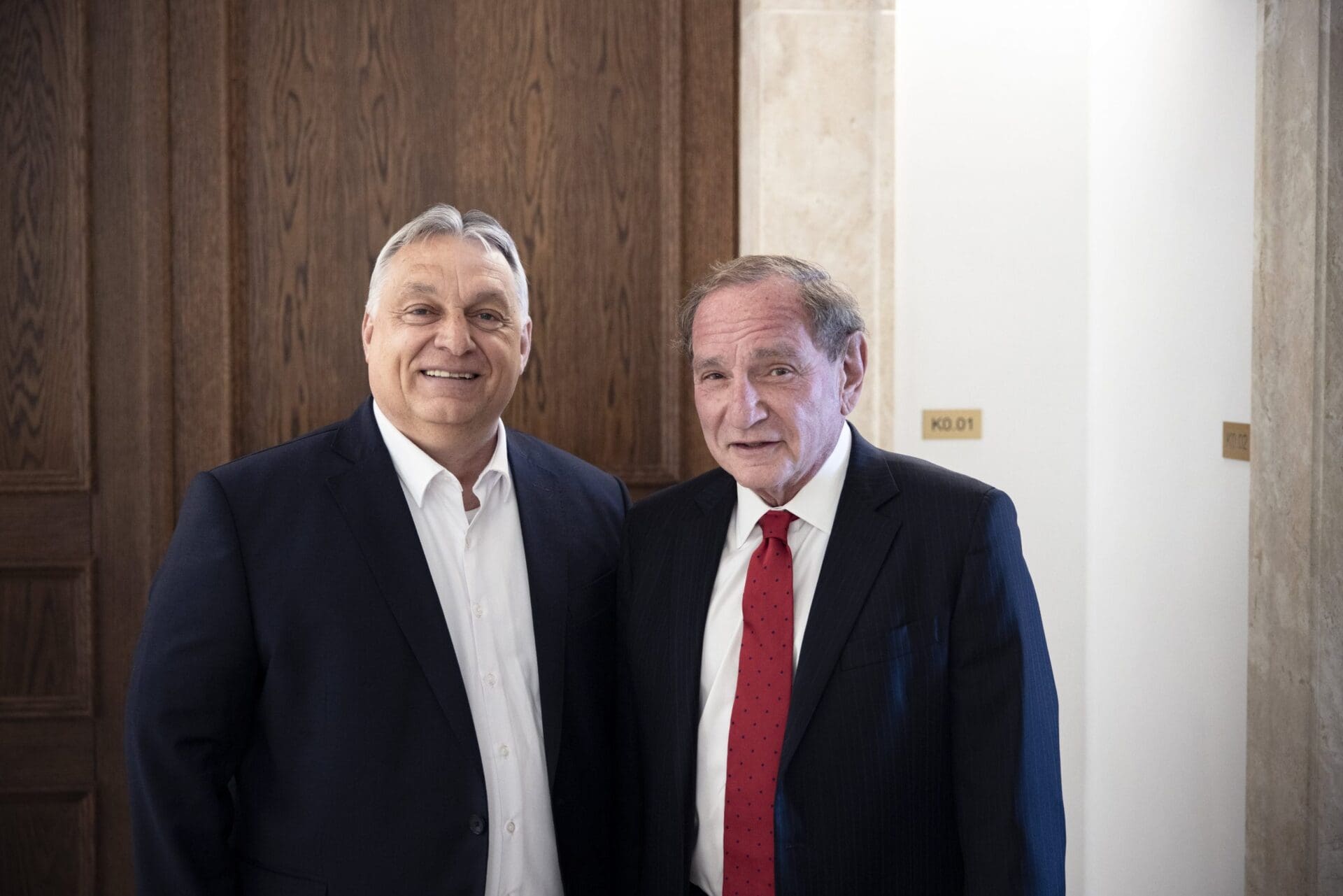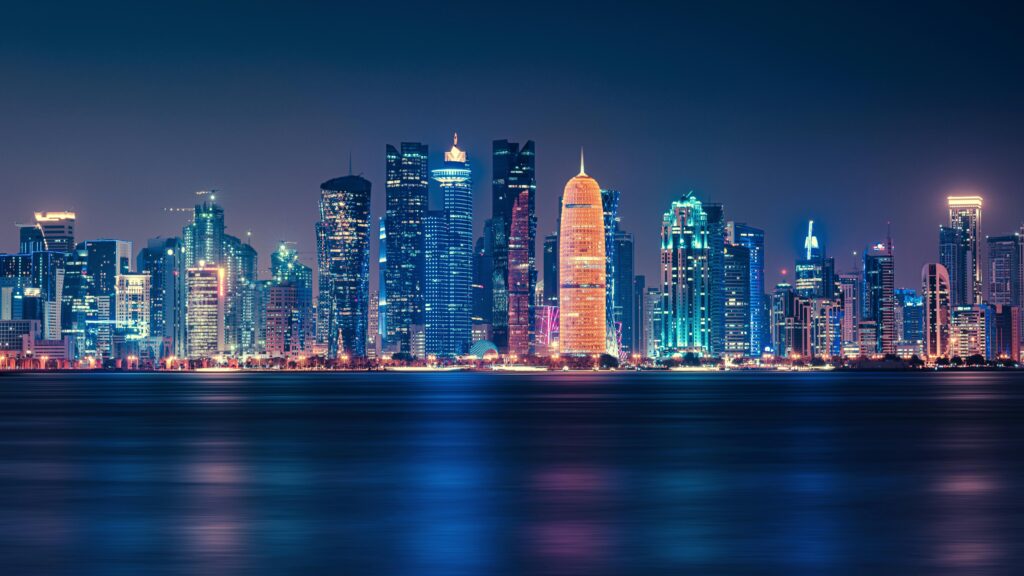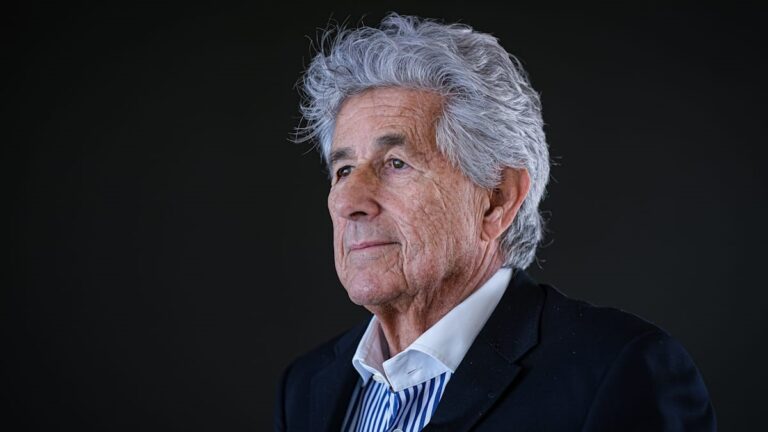The Russians have two weaknesses: one is their lack of men, the other is their extremely weak training programme, Hungarian-born, internationally renowned US geopolitical strategist George Friedman told Hungarian news site Index in a recent interview. The analyst opined that Russia can delay the war as long as it wants, but it cannot win, so it will eventually negotiate. The founder of Geopolitical Futures is gloomy about Europe’s future, but believes the system was already cracked before the war. If the imposition of sanctions further fractures the EU, it will have to be reshaped. Mr Friedman has been quoted many times by Viktor Orbán, most recently in Tusnádfürdő, Transylvania, where the prime minister usually outlines his vision for the coming years.
George Friedman (73) was born in Budapest to Jewish parents. His family fled the Communist regime and emigrated first to Austria and then to the United States. Friedman has worked as a consultant to a number of military and government agencies around the world. From 1996 to 2015, he was president of Stratfor, the private intelligence firm and geopolitical think tank he founded. Since leaving Stratfor, he has been running Geopolitical Futures, a similarly profiled analytical portal he co-founded. His work has been translated into more than 20 languages and several of his books are available in Hungarian, too.
The last time you were in Budapest in June, Viktor Orbán received you at the Carmelite Monastery [the building that houses the Prime Minister’s Offices], where the Hungarian translation of your recent book The Storm Before the Calm was presented. This is not the first time you met him; how would you describe your relationship with the Hungarian Prime Minister?
I have indeed met him before; I think we have a good relationship. We disagree on many issues, but I am deeply opposed to the current tendency to demonise those with whom we disagree. In that sense, there are some ideas of his that I can accept and some that I can’t, but I really enjoy talking to him.
Were you surprised that Orbán quoted from The Storm Before the Calm at the annual Bálványos Summer Free University and Student Camp?
I was very surprised to learn that he quoted from my book. Every author needs attention, and I am no exception. If you go unnoticed, you write in vain, words and sentences are useless.
In Tusnádfürdő, the Hungarian prime minister also said that the war would not have broken out in February if Donald Trump had still been President of the United States and Angela Merkel had been the Chancellor of Germany at the time. What is your opinion about that statement?
Let me go further back. As for Viktor Orbán’s views on Ukraine, I disagreed that the Russians would not attack. In a book I wrote in 2008, The Next 100 Years, I predicted that Russia would attack Ukraine around 2020, but the offensive would fail. So I’m right on one claim, the other remains to be seen. I must also say that when I spoke about the threat, I was quite alone in my opinion. Many people thought I was an alarmist, many who have now forgotten that. So the Prime Minister was not alone in his view that it was not going to happen. I understand the original line of thought, but we cannot ignore the fact that neither Trump nor Merkel were on the stage at that time.
PM Orbán says the EU’s sanctions policy is weakening Europe, not Russia. Do you agree? What future do you foresee for the EU?
I admit that my view of the European Union was already rather pessimistic even before the war. No single central bank could handle the needs of Germany and Italy, not to mention the other 25 Member States. Moreover, German economic power tends to make the Union a German-dominated institution. This, and the myth of a single European identity, seemed troubling to me. So, my view is that the war did not create the tension, it was already there, and the Russian-Ukrainian conflict is only increasing it. At the same time, I also find it implausible to believe that there will not be wars from time to time. No institution or nation can build itself up in such a way that it does not anticipate the possibility of war. Europe must reckon with it. And if we see that the mere imposition of sanctions has led to more fractures within Europe, then there is no way around it, the Union must be reshaped. I agree that the EU is in trouble, but not that this war was the primary source of the trouble.
When can the war end? What is the most likely scenario now?
The Russians have two weaknesses. One is their lack of men, the other is their extremely weak training programme. New soldiers need to be trained before they are sent into combat. So too few, too untrained soldiers are a bad omen for Russia. They are prepared to suffer mass casualties in a foreign country while Ukrainians are fighting and dying for their own country. Russia can drag out the war as long as it wants, but I don’t think it can win. Moscow’s policy will change, and there will be talks.
Dark clouds are on the horizon with the looming energy crisis. When and how can we find a way out of it?
The situation in Europe is worse than in most of other regions. The reason for this is what I have already noted, namely that Europe is not prepared for war. Despite the brutal armed conflicts that tore Europe apart in the past, today’s Europe seems to have believed that wars have already happened and will not happen again. So, instead of creating their own energy sources and stockpiling fuel years ago, Europeans lived in a happy fantasy world where energy would always be available at the right price. Now they are paying for that short-sightedness. They may also believe in another fantasy world, that if Russia wins in Ukraine, they will not start another war in the East again if their interests so dictate. In Europe, one must always expect the worst. That is what usually happens.
In your book The Storm Before the Calm you claimed that European prime ministers have more power than the US president. Does that make Viktor Orbán more powerful than Joe Biden?
In Hungary of course, but the picture is more nuanced. The ministerial government system gives enormous power to the ruling party, as there are no institutional controls. Thus, European prime ministers, including Orbán, do not face Congress or the Supreme Court, which the American founding fathers had designed to prevent concentrated power, even at the cost of instability. The US has great instability, this is not Hungary. Let us face it, the Americans do not understand the Europeans, just as the Europeans do not understand the Americans.
What opportunities do you see in the relationship between the US and Hungary? Are we important partners for America?
There has been tension on both sides for a long time. The tension is greater now than before because of the war, Russia’s position and how the US reacted. Each nation is going its own way, but the best that can be said at the moment is that most US leaders don’t really think about Hungary, so they don’t feel the need to exert any pressure. I trust that the relationship will heal over time. Hungary is a strategically important country in Europe. And it’s not easy to ignore the United States, which is now a much bigger power in Europe than it used to be.
_____________________________________________________________________
It is worth recalling what Viktor Orbán said in Tusnadfürdő on 23 July. The following extract not only reveals the context in which George Friedman’s name was mentioned, but also what the Hungarian prime minister considers to be a realistic goal for this decade.
‘The most important horizon and time limit for our thinking is around 2030. Our analyses suggest that this is when the problems of the Western world will accumulate and multiply in terms of tension. There will be a very serious crisis in the United States. I have just recommended a French author, and I would also recommend to everyone a book by the American analyst George Friedman, also published in Hungarian, entitled “The Storm before the Calm”. In it he outlines the various challenges that the US will have to face, which will peak around 2030. But somehow within this timeframe we will also see the emergence of all the problems of the eurozone: the South and the North having diverging development paths, with the South in debt and the North having to finance it. This will create a tension that after a while will be unsustainable unless the South reforms itself along Northern lines. But they are not showing much inclination for a sudden change in culture, which is why public debt in the South is in the range of 120, 150 or 180 per cent. And then, around 2030, there will be a new power dynamic within the EU, because by that time the Central Europeans, we Central Europeans – who are treated in a way that I don’t need to elaborate on here – will be net contributors…This will also change our relations, and create a new situation for us within the European Union. In other words, Dear Friends, around the year 2030 we will have to be in top form. That is when we will need all our strength: diplomatic, economic, military and intellectual strength.’








